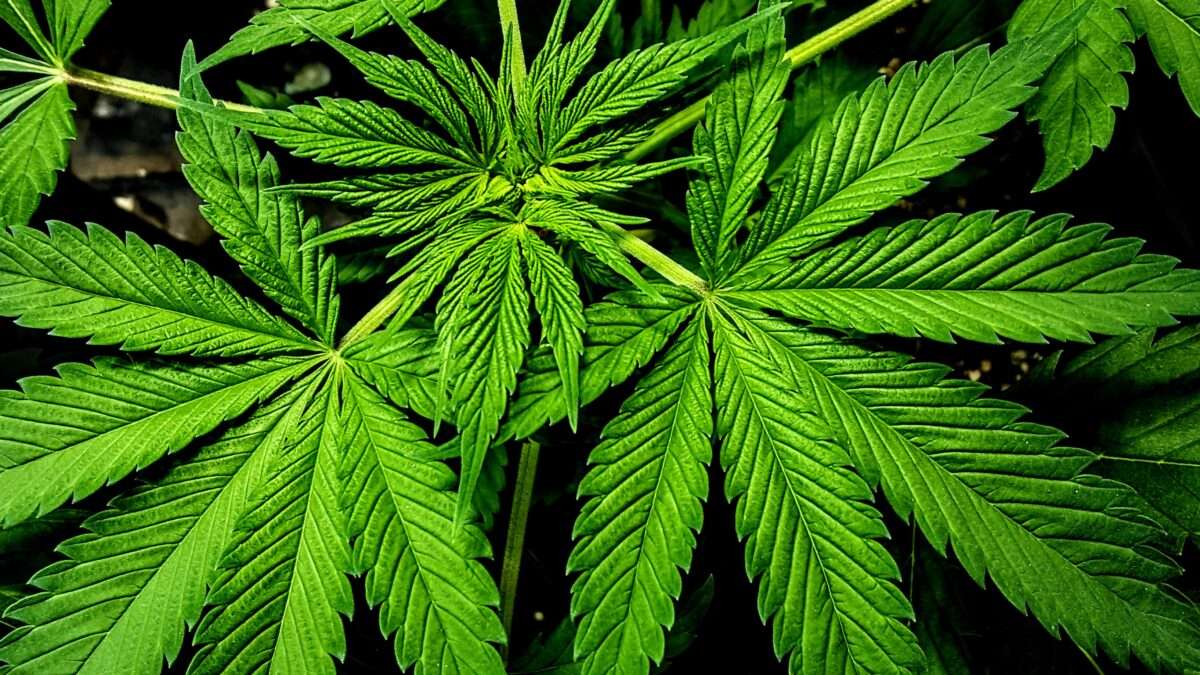Rescheduling Marijuana Does Not Address Today's Central Cannabis Issue

The Justice Department yesterday confirmed that the Drug Enforcement Administration (DEA) plans to move marijuana from Schedule I of the Controlled Substances Act (CSA), a list of completely prohibited drugs, to Schedule III, which includes prescription medications such as ketamine, Tylenol with codeine, and anabolic steroids. The Associated Press notes that the change, which is based on an August 2023 recommendation by the Department of Health and Human Services (HHS) that resulted from a review President Joe Biden ordered in October 2022, "would not legalize marijuana outright for recreational use."
That is by no means the only thing rescheduling marijuana will not do. Biden wants credit for "marijuana reform," which he hopes will help motivate young voters whose turnout could be crucial to his reelection. The announcement of the DEA's decision seems designed to maximize its electoral impact. But voters should not be fooled: Although moving marijuana to Schedule III will facilitate medical research and provide a financial boost to the cannabis industry, it will leave federal pot prohibition essentially untouched.
Rescheduling marijuana will not resolve the conflict between the CSA and the laws of the 38 states that recognize cannabis as a medicine, 24 of which also allow recreational use. State-licensed marijuana businesses will remain criminal enterprises under federal law, exposing them to the risk of prosecution and forfeiture. While an annually renewed spending rider protects medical marijuana suppliers from those risks, prosecutorial discretion is the only thing that protects businesses serving the recreational market.
Even if they have state licenses, marijuana suppliers will be in the same legal position as anyone who sells a Schedule III drug without federal permission. Unauthorized distribution is punishable by up to 10 years in prison for a first offense and up to 20 years for subsequent offenses. That is less severe than the current federal penalties for growing or distributing marijuana, which include five-year, 10-year, and 20-year mandatory minimum sentences, depending on the number of plants or amount of marijuana. But distributing cannabis, with or without state permission, will remain a felony.
That reality suggests that banks will remain leery of providing financial services to state-licensed marijuana suppliers, which entails a risk of potentially devastating criminal, civil, and regulatory penalties. The dearth of financial services has forced many cannabis suppliers to rely heavily on cash, which is cumbersome and exposes them to a heightened risk of robbery. It also makes investment in business expansion difficult.
Although federal arrests for simple marijuana possession are rare, cannabis consumers likewise will still be committing crimes, even if they live in states that have legalized marijuana. Under 21 USC 844, possessing a controlled substance without a prescription is a misdemeanor punishable by a minimum $1,000 fine and up to a year in jail. Moving marijuana to Schedule III will not change that law, which only Congress can do. Nor did President Joe Biden's mass pardons for people convicted of simple marijuana possession under that statute, which apply only retrospectively, "decriminalize the use of cannabis," as he promised to do during his 2020 campaign.
Biden has repeatedly decried the barriers to education, employment, and housing that marijuana convictions create. But contrary to what he claims, his pardons do not entail expungement of criminal records and therefore do not eliminate those barriers. Nor did the pardons address the various legal disabilities associated with marijuana convictions, cannabis consumption, or participation in the cannabis industry, which include loss of Second Amendment rights (a policy that Biden defends) and ineligibility for admission, legal residence, and citizenship under immigration law. Rescheduling marijuana likewise will not remove those barriers and disabilities.
Moving marijuana to Schedule III will not even make it legally available as a medicine, which would require regulatory approval of specific products. Doctors can legally prescribe Marinol (a.k.a. dronabinol), a synthetic version of THC listed in Schedule III, and Epidiolex, a cannabis-derived CBD solution listed in Schedule V. But they will not be able to prescribe marijuana even after it is moved to Schedule III unless the Food and Drug Administration approves additional cannabis-based medications.
The medical "recommendations" that authorize patients to use marijuana for symptom relief under state law are not prescriptions, and they do not make such use compliant with the CSA. So rescheduling marijuana not only will not legalize recreational use; it will not legalize medical use either.
What will rescheduling do? It should make medical research easier by eliminating the regulatory requirements that are specific to Schedule I, and it will provide an important benefit to state-licensed marijuana suppliers by allowing them to deduct standard business expenses when they pay federal income taxes.
Under Section 280E of the Internal Revenue Code, which is aimed at sticking it to drug dealers, taxpayers may not claim a "deduction or credit" for "any amount paid or incurred during the taxable year in carrying on any trade or business" that involves "trafficking" in Schedule I or Schedule II drugs. As that provision has been interpreted by tax courts, marijuana businesses can still deduct the "cost of goods sold," which counterintuitively means they can deduct the expenses associated with obtaining and maintaining an inventory of cannabis products. But they cannot deduct any other business expenses, including rent, utilities, salaries and benefits, office supplies, security, cleaning services, insurance, and legal fees.
That rule results in a crushing financial burden, forcing marijuana retailers to pay an effective tax rate as high as 70 percent or more. But because Section 280E applies only to businesses that sell drugs in Schedule I or Schedule II, moving marijuana to Schedule III will eliminate that disadvantage.
"I cannot emphasize enough that removal of § 280E would change the industry forever," cannabis lawyer Vince Sliwoski writes. "Having worked with cannabis businesses for 13 years, I view taxation as the largest affront to marijuana businesses—more than banking access, intellectual property protection problems, lack of bankruptcy, you name it. This would be HUGE." In addition to making it much easier to turn a profit, Sliwoski says, the tax change would help attract investors and give marijuana businesses "more leverage" in negotiating those deals.
Aside from those practical changes, rescheduling represents a historic federal about-face on the benefits and hazards of marijuana. Schedule I is supposedly reserved for drugs with a high abuse potential and no accepted medical use that cannot be used safely even under a doctor's supervision. Explaining its rationale for recommending marijuana's reclassification, HHS acknowledged that the drug does not meet those criteria—a point that critics had been making for half a century.
HHS cited "credible scientific support" for marijuana's use in the treatment of pain, nausea and vomiting, and "anorexia related to a medical condition." Regarding abuse potential and safety, it noted that marijuana compares favorably to "other drugs of abuse," such as heroin (Schedule I), cocaine (Schedule II), benzodiazepines like Valium and Xanax (Schedule IV), and alcohol (unscheduled). "The vast majority of individuals who use marijuana," HHS said, "are doing so in a manner that does not lead to dangerous outcomes to themselves or others."
In agreeing to follow the HHS recommendation, the DEA likewise is implicitly admitting that the federal government has been lying about marijuana for decades. But that long-overdue reversal falls far short of addressing today's central cannabis issue: the conflict between federal prohibition and state tolerance, which extends to recreational use in jurisdictions that account for most of the U.S. population. Repealing the federal ban—a step that Americans overwhelmingly support—would resolve that conflict. And while Biden cannot do that on his own, he has stubbornly resisted the idea, even as he emphasizes the irrationality and injustice of the war on weed.
The post Rescheduling Marijuana Does Not Address Today's Central Cannabis Issue appeared first on Reason.com.

